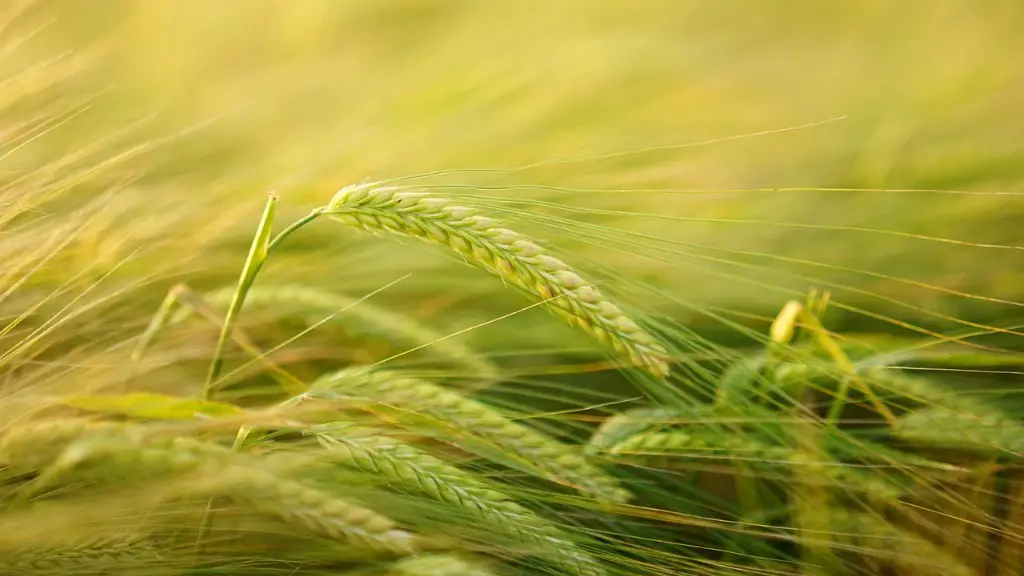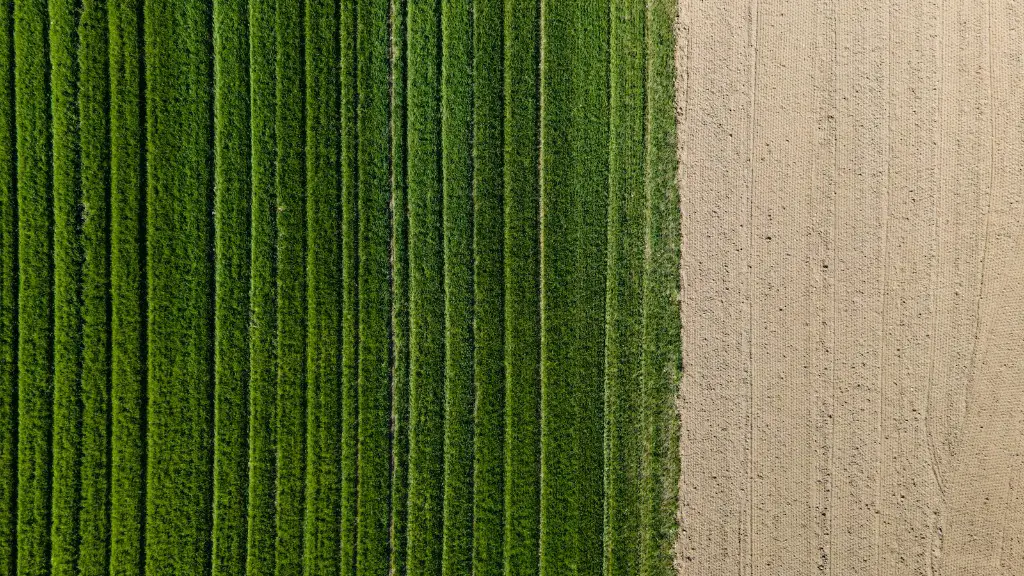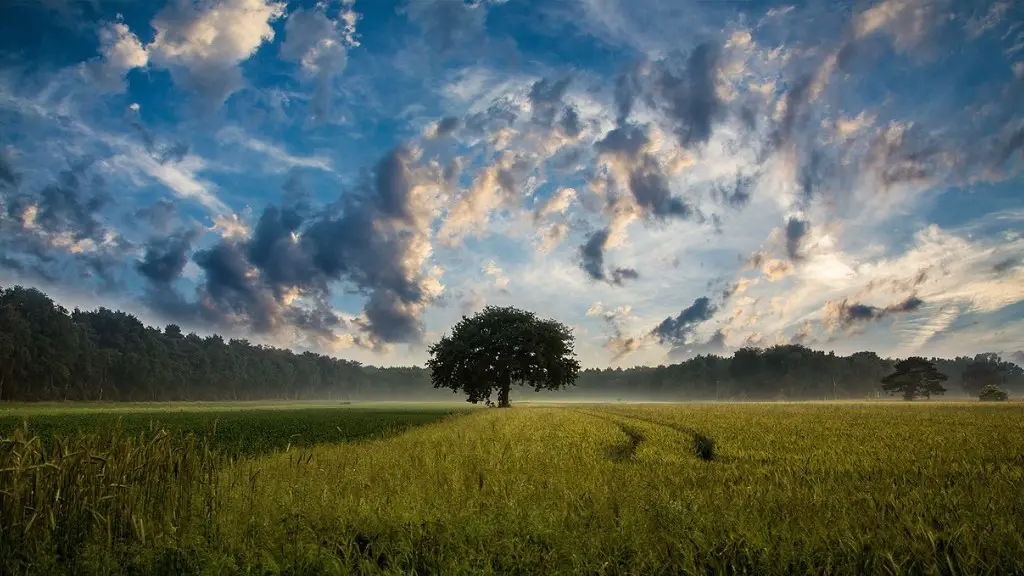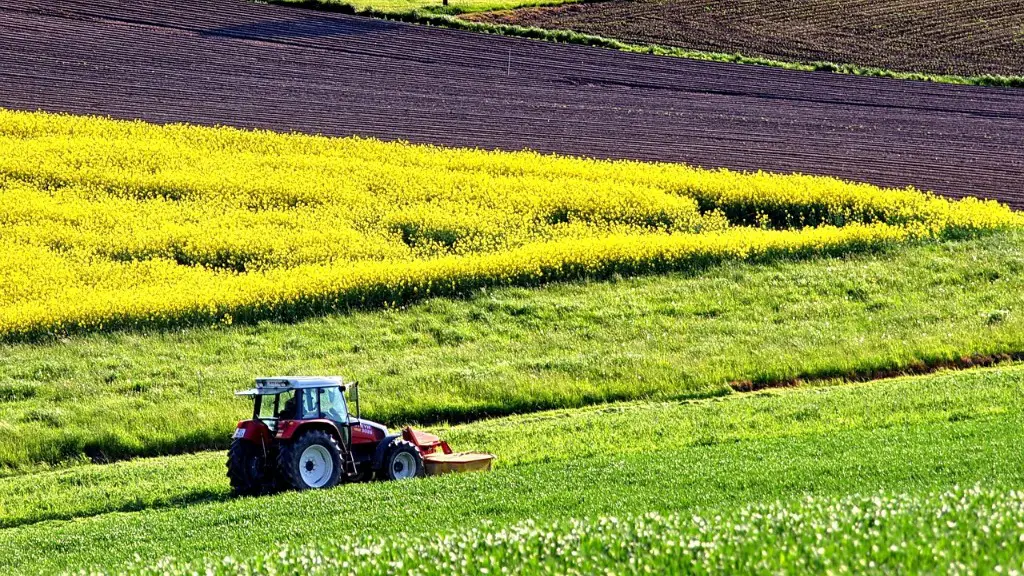Organic agriculture has been increasingly promoted as a way to reduce environmental impacts of food production, but it may have more drawbacks than benefits. Natural processes are often less efficient than chemical or mechanical processes, so organic farms may require more land and labor to produce the same amount of food. In addition, organic agriculture can lead to increased soil erosion and water contamination from manure and other farm chemicals.
There is no one-size-fits-all answer to this question, as the impacts of organic agriculture can vary depending on the specific context and approach. However, some potential negative impacts of organic agriculture include:
1. Soil depletion and degradation: Organic agriculture often relies heavily on tillage (turning over the soil), which can lead to soil depletion and degradation.
2. Pest and weed problems: Organic agriculture can often be less effective than conventional agriculture at controlling pests and weeds, leading to higher crop losses.
3. Lower yields: In general, organic agriculture tends to have lower crop yields than conventional agriculture, due to a number of factors (e.g., poorer pest and weed control, lower use of fertilizers and other inputs).
4. Higher costs: Organic agriculture can be more expensive than conventional agriculture, due to the higher costs of labor and inputs.
5. Social and economic impacts: Organic agriculture can have negative social and economic impacts, particularly in developing countries, where it can lead to a decline in small-scale farmers and an increase in large-scale, commercialized agriculture.
What is negative about organic farming?
There are a few reasons why organic food is more expensive than conventional food. First, farmers do not get as much out of their land as conventional farmers do. This is because they have to use more natural methods of farming, which are often less effective than conventional methods. Second, production costs are higher because farmers need more workers. This is because organic methods of farming are often more labor intensive than conventional methods. Finally, marketing and distribution is not as efficient for organic food because it is produced in smaller amounts.
Organic food is more expensive to buy than non-organic food. This is one of the main reasons why people choose not to buy organic food.
Another reason is that many people believe that organic food does not allow the use of any chemicals. This is not true – organic food production does allow a limited number of chemicals to be used.
However, there are some good reasons to buy organic food. Organic food is grown without the use of harmful pesticides and fertilizers. It is also often grown in a more sustainable way, using methods that protect the environment.
Ultimately, the decision of whether or not to buy organic food is a personal one. Weigh up the pros and cons and make the choice that is right for you.
Why is non-organic farming better
Non-organic farming practices are less expensive and typically produce more crops per acre than organic farming practices. This savings is typically passed along to the consumer in the form of lower prices for conventional foods. Additionally, conventional foods typically last longer on the shelf and don’t spoil as quickly as organic foods, making them great for longer-term storage and consumption.
There are a few downsides to buying organic food, the main one being cost. Organic foods often cost more than similar foods grown using conventional methods. Higher prices are due, in part, to more costly ways of farming. Another downside is that organic foods can sometimes be harder to find than conventional foods.
What are the 3 disadvantages of organic food?
Organic food is grown without the use of synthetic fertilizers, pesticides, or herbicides. While this may seem like a good thing, there are some significant downsides to organic farming. One of the biggest problems is that organic farmers usually have much lower yields than conventional farmers. This means that organic food is often much more expensive than non-organic food. Additionally, organic food often spoils more quickly than non-organic food, so it can be more difficult to keep it fresh. Finally, organic food is sometimes contaminated with E. coli bacteria, which can be very dangerous.
Organic farming has been gaining popularity in recent years as more and more people are looking for ways to eat healthier and more natural foods. However, organic farming is not without its challenges. Farmers have to deal with time constraints, pests, and marketing issues in order to be successful.
One of the biggest challenges of organic farming is that it takes time to produce food that meets the strict standards set by the USDA. This can be a problem for farmers who are already working long hours and don’t have a lot of extra time to devote to their crops. In addition, pests can be a big problem for organic farmers. While traditional farmers can use pesticides to keep pests away, organic farmers have to find other ways to keep their crops safe. This can be a challenge, especially in areas where pests are a big problem.
Marketing is also a challenge for organic farmers. Because there is a limited supply of organic food, it can be difficult to sell their products at a price that is competitive with traditional farmers. Farmers have to find ways to market their products to consumers who are willing to pay a premium for organic food.
Despite these challenges, organic farming can be a rewarding and profitable endeavor. Farmers who are able to overcome the challenges of organic farming can
Does organic farming destroy the environment?
Organic agriculture is a type of agriculture that focuses on producing food without the use of synthetic pesticides and fertilizers. Organic agriculture reduces non-renewable energy use by decreasing agrochemical needs. This is because synthetic pesticides and fertilizers are made from fossil fuels, which are non-renewable resources. Additionally, organic agriculture contributes to mitigating the greenhouse effect and global warming through its ability to sequester carbon in the soil. Carbon sequestration is the process of storing carbon in the soil, and it helps to offset the emissions of greenhouse gases.
There is much debate surrounding the safety and quality of organic foods. Some argue that organic foods are safer and of higher quality than conventionally grown foods, while others claim that there is no difference between the two. price is also a contentious issue, with organic foods often costing more than their conventional counterparts.
Is organic farming better or worse for the environment
Organic farming is a great way to reduce pollution and protect the environment. By using less synthetic pesticides and fertilizer, organic farmers are able to reduce the amount of pollution that is released into the air, water, and soil. This also helps to prevent soil erosion and loss of nutrients in the soil. In addition, organic farming uses less energy than conventional farming, which further reduces pollution and emission of greenhouse gases.
Organic foods must be grown and processed without the use of methods like irradiation, sewage sludge, or genetic engineering. These methods are considered to be harmful to the environment and to human health, and are therefore not allowed in organic food production.
Why organic farming is less productive?
Organic farming is a type of agriculture that relies on natural processes, rather than the use of synthetic chemicals, to enhance crop growth and yield. Because it does not use chemical fertilisers, organic farming requires more land to produce the same amount of commercial crops compared to conventional farming.
While organic farming methods may require more land, they have numerous benefits that make them worth considering. For example, organic farming can help to improve soil health, promote biodiversity, and reduce the reliance on synthetic pesticides and fertilisers.
Organic crops are often touted as being nutritionally superior to conventional or GMO crops, but there is little evidence to support this claim. In fact, numerous studies have found no significant nutritional advantage of organic over conventionally grown foods. While organic foods may be free of synthetic pesticides and fertilizers, they are not necessarily free of all contaminants. In fact, organic foods may be just as likely to be contaminated with harmful chemicals as conventionally grown foods.
Is organic farming less efficient
Organic agriculture has a number of benefits over conventional farming, but one downside is that it has a 25 percent lower crop yield. This is due to a number of factors, including the lack of synthetic fertilizers and pesticides, and the reliance on tilling to kill weeds instead of using conventional methods. Despite this lower yield, organic agriculture is still a viable option for many farmers, and the benefits it offers outweigh the drawbacks.
Organic farmers are at a disadvantage when it comes to lack of information and infrastructure. They are also obliged to achieve production goals with less reliance on externally inputs and to pursue non-economic values such as maintaining and creating social and ecological capital. This makes it difficult for organic farmers to compete with conventional farmers.
What are the struggles of organic farming?
One of the major challenges of organic farming is the lack of awareness among farmers about organic farming and its benefits. In addition, marketing and prices for organic produce are often higher than for conventional produce, which can make it difficult for farmers to switch to organic methods. Another challenge is the shortage of essential nutrients in soil, which can lead to low productivity.
Organic products are grown without the use of toxic and persistent chemicals, which reduces public health risks to farm workers, their families, and consumers. By minimizing exposure to these chemicals, organic products help to protect the health of those who work and live on the farm, as well as those who consume the food grown there. In addition, organic methods of farming help to protect the soil and water, which can also be contaminated by these chemicals.
Final Words
There is no one-size-fits-all answer to this question, as the reasons why organic agriculture may be considered bad can vary depending on the context and perspective. Some potential reasons why organic agriculture may be considered bad include: 1) it can be more expensive than conventional agriculture; 2) it can be less productive than conventional agriculture; 3) it can require more land than conventional agriculture; and 4) it can have negative impacts on the environment.
Organic agriculture is bad for the environment because it requires more land to produce the same amount of food as conventional agriculture. This results in more deforestation and habitat loss. Additionally, organic agriculture is often less efficient than conventional agriculture, meaning that more resources are required to produce the same amount of food. This includes more water, energy, and labor.





